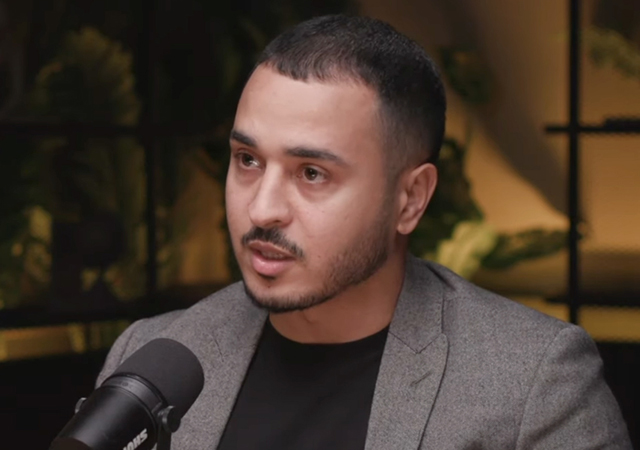 Dr Bataw ... collaboration is key.
Dr Bataw ... collaboration is key.
In a recent interview with construction software company Procore Technologies, Dr Bataw, COP Technology Adviser and a driving force behind AEC innovations in the Middle East, Singapore, and the UK, outlined the challenges and opportunities for sustainable urban development, highlighting the Middle East’s emergence as a global leader in this space.
“A sustainable city considers environmental, social, and economic impacts throughout its design, construction, and operation,” Dr Bataw explains.
Hence, plans for these cities should consider the region’s climate issues, challenges and benefits.
“The key to success to any sustainable city is bearing in mind where you are located and utilising that for your benefit,” he adds.
He cites Masdar City in Abu Dhabi and Musheireb in Doha, Qatar as exemplary projects that have seamlessly integrated sustainability principles throughout their design, construction and operation.
He praises Masdar and Musheireb for building strong public-private partnerships and utilising financial incentives to overcome the higher costs of sustainable construction. These developments serve as valuable case studies for other regions seeking to emulate their success.
Dr Bataw emphasises the critical role of collaboration in achieving sustainability goals and champions the “Quadruple Helix” model, where governments set the vision, industry implements projects, academia fuels innovation, and technology vendors provide solutions, thus working together to create an underlying ecosystem for sustainable cities. He highlights the importance of early engagement and adaptable policies to ensure effective collaboration across all levels. And, he believes that clear visions, strong mandates, and financial incentives are essential for driving sustainable development through this collaborative framework.
Dr Bataw stresses the need for a paradigm shift in how we interact with technology vendors, viewing them not as mere suppliers but as trusted partners in the ecosystem.
Top-Down Mandates and Bottom-Up Innovation
Dr Bataw states throughout the episode that both top-down and bottom-up approaches are crucial to achieving sustainability goals. Strong mandates and incentives from governments are essential, but they must be informed by the realities and innovations from the industry, academia, and vendors. Modern methods of construction exemplify this collaborative approach.
True Impact of Digital Innovations on Sustainable Construction
Digital technologies are playing a crucial role in accelerating sustainable practices. Dr Bataw expressed opinion on how digital solutions like building information modelling (BIM) and advancements in AI can optimise design, construction management, and asset operation, leading to improved energy efficiency and reduced waste. He also emphasises the importance of innovations like 3D printing and prefabrication in furthering sustainable construction practices. Expressing his particular excitement about 3D printing’s potential to revolutionise the industry, he also explains that it’s not just through greening existing materials like concrete but also by opening doors to entirely new materials, optimised designs, and near-zero waste processes.
Navigating Challenges and Seizing Opportunities
Rapid urbanisation presents a unique challenge for the Middle East, prompting visionary mega-projects like “The Line” in Neom, Saudi Arabia. However, proactive government initiatives and engaged stakeholders are propelling the Middle East ahead of other regions in terms of sustainability advancements.
Dr Bataw admits that the financial viability of climate technology still lags behind other industries, hindering widespread adoption.
“Despite these hurdles, significant improvement and impact are evident in the sector,” he says.
COP28, Saudi Green Initiative and other regional efforts will accelerate climate tech adoption and impact, particularly in the Middle East,” he states.
Dr Bataw expresses optimism about achieving Net Zero, citing examples like the Al-Sheraa building in Dubai, the world’s tallest and largest Zero Energy government building. However, he stressed the need for clear vision, dedicated planning from the outset, and early integration of sustainability into the design and construction phases.
Regional Influence on Setting Global Sustainable City Trends
In spite of starting later than other regions, the Middle East is demonstrating remarkable progress in sustainable construction. Dr Bataw attributes this to the region’s proactive government initiatives, visionary mega-projects, and engaged stakeholders.
He points out that sustainability officers are now present at board level in companies in the region and are leveraging technology to drive sustainable development.
Dr Bataw expressed that the future of sustainable construction in the Middle East is bright, seeing the region to not only define its own future but make waves internationally with solutions developed here, showcasing its rising expertise and shaping a greener future for the industry.
The interview concludes with some advice for those seeking to enter the sustainability sector of the construction industry. He encourages young minds to embrace the diverse opportunities available in this rapidly evolving field, imploring individuals with varied skill sets, from computer scientists to creative minds and material scientists, to join the effort in creating a greener future for the built environment.
*Dr. Anas Bataw is a renowned figure in sustainable construction, driving innovations and technology in MENA, Singapore, and the UK. Globally recognized, he has received awards such as the Global Innovations Leader (2022) and Technology Strategist of the Year (2020). Dr Bataw contributes to non-profit task groups and academia, showcasing unique leadership in business case development, ecosystem creation, and value realisation for large-scale solutions.








.jpg)




.jpg)




























.jpg)
































